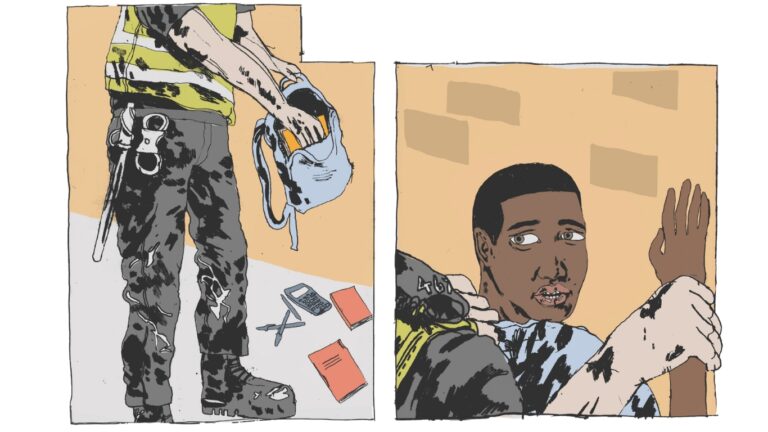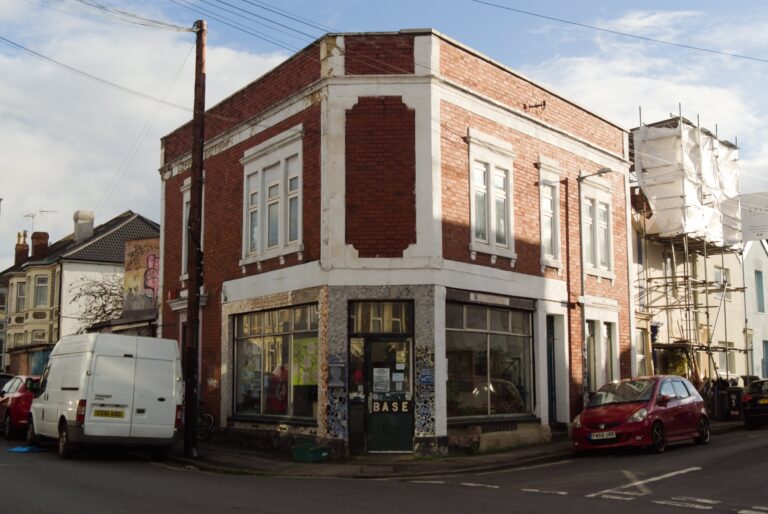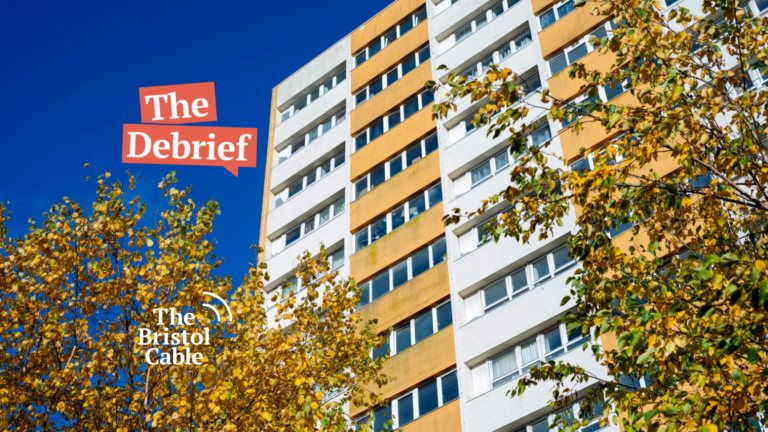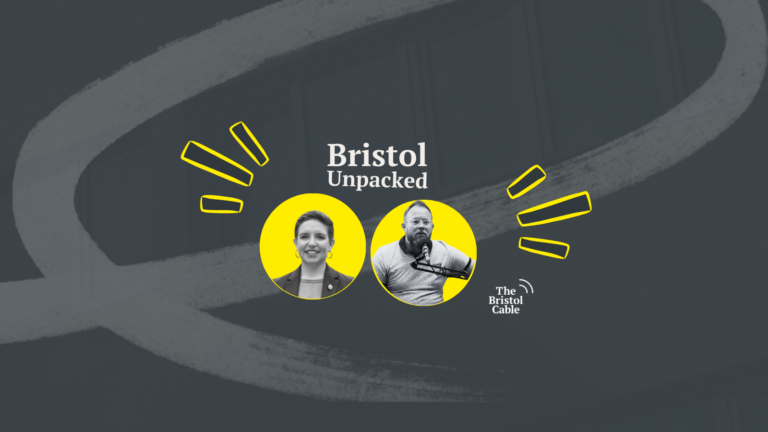Leading scientist: How climate change is already hitting Europe and how we need to adapt
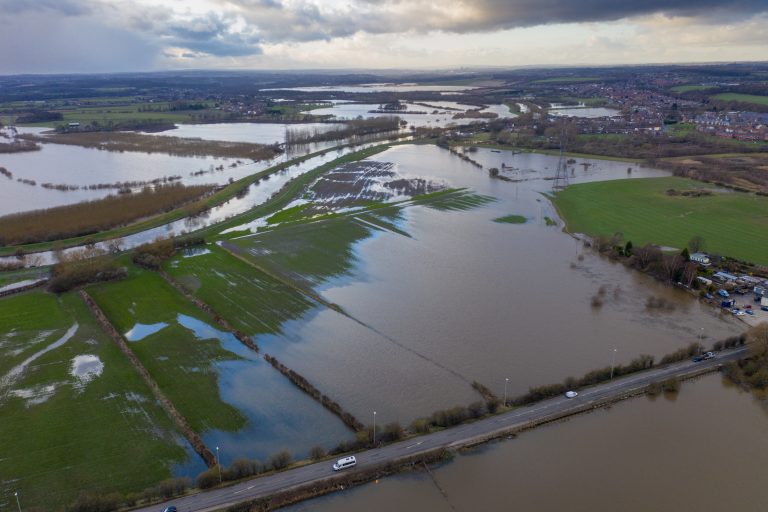
“We have this window of opportunity to act on climate change, but this window is closing very rapidly.”
We spoke to Professor Daniela Schmidt, a lead author on the latest landmark scientific report on the climate crisis, about the findings of the latest report by the Intergovernmental Panel on Climate Change (IPCC), released yesterday.
It showed that human-induced climate change is wreaking havoc in nature and affecting the lives of billions of people around the world, despite efforts to reduce the risks.
The Working Group II report, which focuses on the impact of climate change and how we need to adapt, is the second instalment of the current round IPCC reports, after the first issued a code-red warning for humanity last year.
The report concluded that the world faces unavoidable multiple climate hazards over the next two decades with global warming of 1.5°C above pre-industrial levels. This is the target that countries around the world are trying to limit warming to, but the chances of this now appear slim following disappointing progress at last November’s landmark global climate summit Cop26 in Glasgow.
“Climate change is not something for the future,” Schmidt told the Cable. “It is something that is affecting us now. More and more of the impacts we’re seeing today, such as heatwaves, drought over the last decade, are already attributed to climate change.
“One of the most important findings is that we see severe risks arising at lower temperatures than previously expected.”
She said that the report identified four key risks for Europe – heat, crop losses, water scarcity and flooding. “We see these risks already today but they will become stronger with every increment of warming,” she said.
Schmidt said a crucial message is that we have left it too late to just focus on mitigation – in other words cutting our carbon emissions – so we need to focus much more on adaptation. “Global warming will happen. Even if we were to stop emitting today, some of the impacts would happen anyway.”

What about European cities like Bristol?
“The risks are highest in central Africa, South East Asia, small island nations and the polar regions,” Schmidt said. “But it’s really important to remember for a city like Bristol that although Europe has in general lower vulnerability to climate change impact than other parts of the world, this is not equally distributed among all of us.
“For those people who don’t have the financial means to make their house more heat proof or more energy resilient, for those living on a flood plain, who don’t have the means to sell their house and move somewhere else: Those who are more economically more vulnerable and those who are older within society are more impacted.”
There was a particular focus by the IPCC report on cities. “The majority of the world population will be living in cities in the next decades. Cities, and Bristol is no exception, have their own heat islands, where we have fewer trees and green areas and more dense settlements, those parts become even hotter.
“At the moment, a quarter of the European population lives on a potential floodplain and half of UK cities are projected to see a real increase in high river flows and flooding if we reach 2°C of warming. That seems a long way off, but we are at 1.1°C already,” Schmidt said.
“For Bristol, it’s really important that in our city planning we think about how to protect against flood risk, accommodate water retention and have ecosystem-based solutions for some of those flood risks, and that our infrastructure investment in Bristol takes climate change and how the world will look like in 20 years time or 60 years time into consideration.”
But other parts of the globe will be harder hit and risk displacing people, Schmidt said. Small islands, polar regions and coastal areas will become uninhabitable in future if we continue to warm the planet at the current rate.
“Many of those affected by climate change today are among the most economically vulnerable and they don’t have the means to move around the world,” Schmidt said. “They therefore relocate within their own countries or within directly neighbouring countries. The report shows very clearly that climate change has an impact on those relocations.”
Recently, Bristol Mayor Marvin Rees joined other city mayors in calling for urgent action to prepare for mass migration to cities due to the climate emergency. Rees told the Guardian: “Cities hold the key to tackling climate change, with over half the world’s population living in densely populated urban areas. This percentage will grow as cities will also house the majority of those forced to migrate because of climate change in their home countries.
“It’s therefore imperative that Bristol, alongside other cities in developed nations, show leadership in how to minimise the long-term need for climate displacement. At the same time we recognise that migrants are an asset to our cities and can aid our inclusive green transition by bringing diverse skills and experience.”
Time to adapt
“Mitigation will not be enough to stop seeing impacts and increasing risks from climate change,” Schmidt said. “It’s really important to understand that we need to dramatically increase our adaptation,” she said.
“We can see on heat for example that greening cities with parks and green roofs, making sure we don’t build infrastructure near our rivers where they might get flooded, or changing our behaviour on how we deal with hot days, all of these can reduce the risk of heat related death.”
But she said that we don’t yet have enough information about the effectiveness of different adaptations that have been tried around the world.
“What we’ve seen globally is that not enough is being done.”


